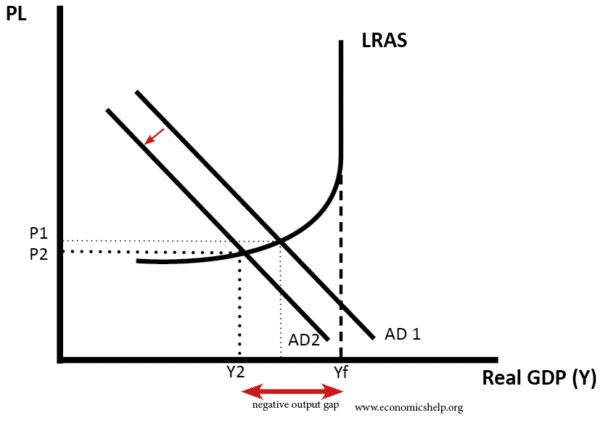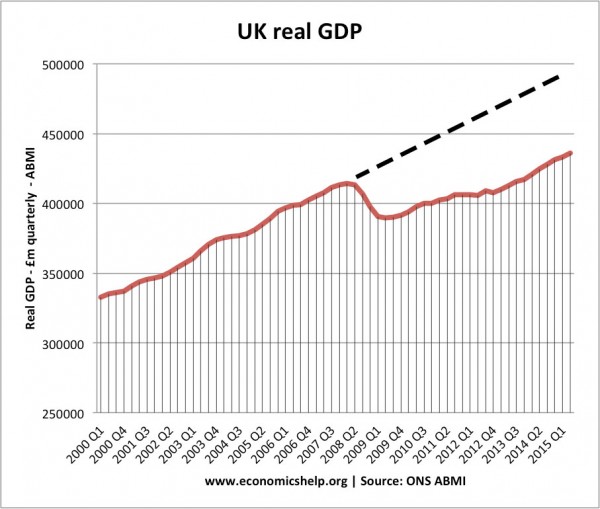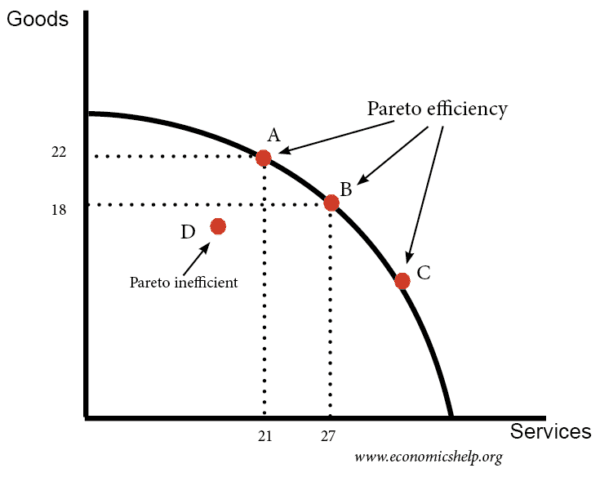Definition deflationary gap – This is the difference between the full employment level of output and actual output. For example, in a recession, the deflationary gap may be quite substantial, indicative of the high rates of unemployment and underused resources. A deflationary gap is also known as a negative output gap.
Causes of deflationary gap
- Fall in aggregate demand (AD) due to
- Fall in exports (global recession)
- Fall in investment (due to banking collapse and credit crunch)
- Fall in consumer spending (e.g. higher interest rates, falling wages.)
- Economic growth well below the average trend rate of growth (AD increasing at slower rate than productive capacity)
Diagram showing deflationary gap

We can also show a deflationary gap with a production possibility frontier.
With a deflationary gap, it implies that output is significantly below potential.
The deflationary gap would be at point D.
Deflationary gap and long-run trend rate of growth
The deflationary gap is also influenced by the rate of economic growth compared to the long-run trend rate of growth. If growth is below trend we will get a deflationary gap.

The deflationary gap in the UK economy post 2008/09 recession.
Impact of deflationary gap
If an economy experiences a deflationary gap, then it will have the following impact on the wider macroeconomy.
- Rising Unemployment. We will get demand-deficient unemployment and possibly higher structural unemployment
- Low/negative rates of economic growth.
- Negative impact on government’s budget. With lower economic growth, the government will receive lower tax revenue and lower government spending.
- Low rates of inflation/disinflation. Possibly deflation. WIth a deflationary gap, firms have excess capacity, this tends to put downward pressure on prices and wages.
Difference between deflationary gap and deflation
- Deflation means a fall in the price level – (a negative rate of inflation)
- A deflationary gap means that the economy is below full capacity and there is low growth. It doesn’t necessarily mean deflation because even in a recession with falling output, we may still get a very low rate of inflation.
Related concepts

